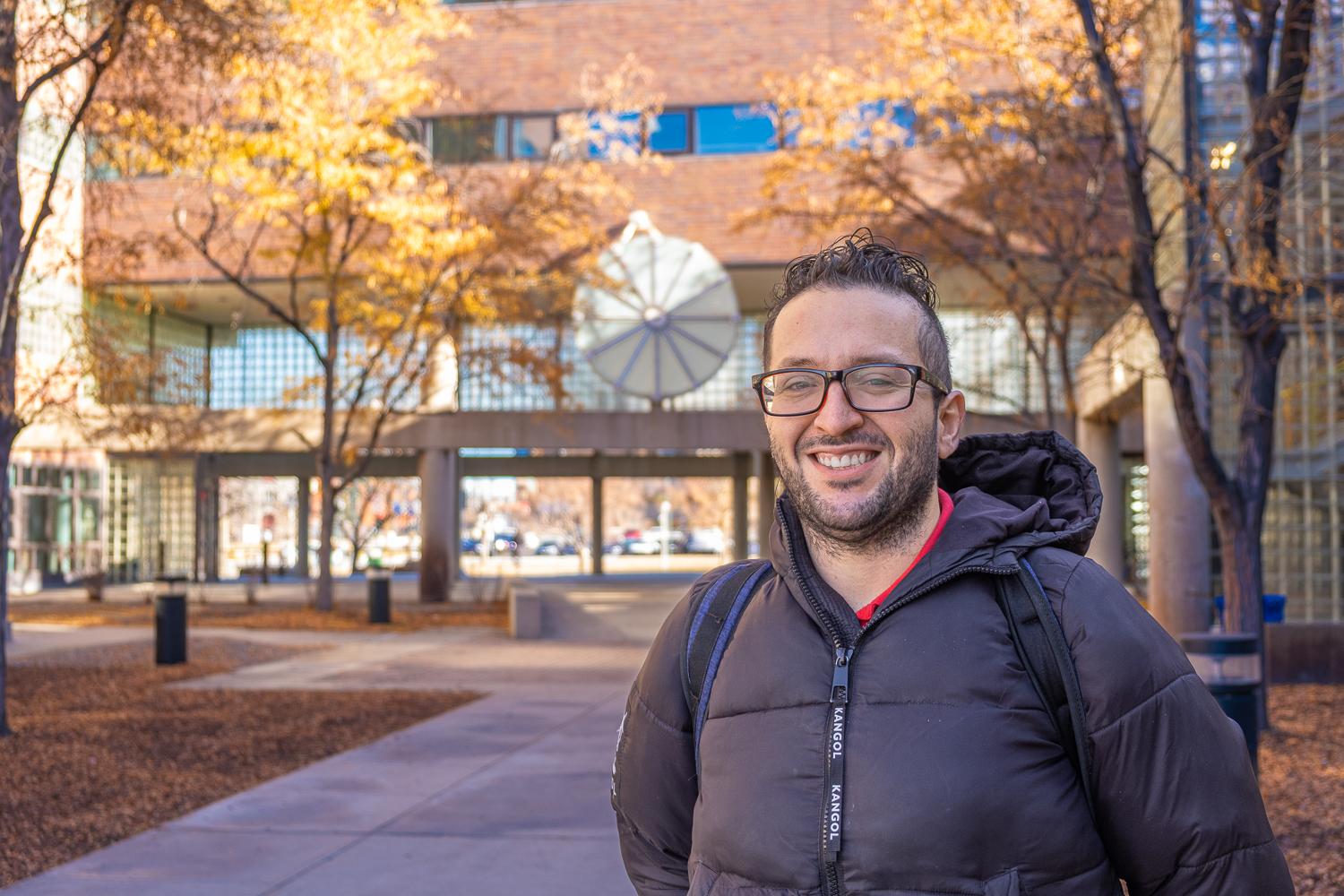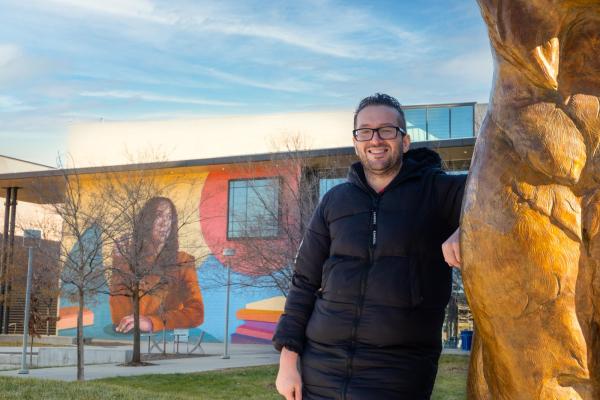
Explore an Integrative Biology Masters Degree
From Kurdistan to Colorado: How One Student Followed His Fascination with Arachnids into a Career in Taxonomy
Goran Shikak didn’t always know he’d become a taxonomist. But looking back, the signs were there. Born in Miami and raised in Kurdistan, Goran spent his childhood exploring two vastly different worlds—both geographically and culturally. From a young age, he was drawn to nature and the questions it raised. Why do creatures look the way they do? What defines one species from another?
It wasn’t until his undergraduate studies in zoology that these childhood curiosities began to crystallize into academic focus. There, he encountered a course in systematics—the scientific study of the diversity and classification of life. Goran was captivated. That class marked the beginning of a journey that would lead him to CU Denver’s Master of Science in Biology program and into the fascinating world of arachnids.
Finding His Place at CU Denver
Unlike many of his peers, Goran didn’t follow a traditional path into graduate school. He sought it out.
After discovering the niche field of arachnid systematics, he began contacting experts across the country. That’s when he was introduced to Dr. Paula Cushing, Senior Curator of Invertebrate Zoology at the Denver Museum of Nature and Science. Their shared interest in arachnids—and the potential for museum-based research—led him to apply to CU Denver.
What drew him in wasn’t just the academic rigor. It was the university’s collaborative environment and strong mentorship culture. “With a good lab, a good advisor, and a good team, they can provide so much support,” he said. “If you're in a program you fit with, nobody wants to see you fail.”
CU Denver’s Biology program is grounded in accessibility, real-world research, and student support—values that align closely with Goran’s experience. Through its partnership with institutions like the Denver Museum of Nature and Science and the Denver Botanic Gardens, the program gives students like Goran access to field-defining resources and research opportunities.
Research That Makes a Real-World Impact
At CU Denver, Goran pursued two key research projects. One focused on developing best practices for rehydrating desiccated museum specimens—especially arachnids stored in ethanol. His work helps curators better preserve DNA and morphology in fragile specimens, ensuring that valuable biological data isn’t lost.
The other project centered on camel spiders (Solifuges), a little-known group of arachnids that even seasoned biologists find mystifying. These nocturnal creatures are rare, difficult to study, and surrounded by misinformation.
Goran’s work led to the identification of two potential new species and even the establishment of two new genera—a significant contribution to a largely unexplored field.
“This research left me with a thousand more questions,” he said. “It’s not just about naming a species. It’s about unlocking a whole world of ecological and evolutionary insights.”
Education That Works for All
Goran’s journey through CU Denver reflects the university’s commitment to providing education that works for all—a foundational brand pillar. His story speaks directly to students of diverse backgrounds who may be wondering if they belong in higher education or if they have what it takes to contribute to their field.
As someone who straddles multiple cultures (Kurdish and Ecuadorian), Goran found belonging and academic empowerment at CU Denver. His success is a testament to the institution’s focus on inclusive community and mentorship-driven learning.
He also brings this mindset into public engagement. At the museum, he loves working with children and families, helping to dispel myths about arachnids. “Kids aren’t as scared of spiders as adults think,” he said. “They’re curious. You just have to give them the right information.”
Meet Your Moment: Goran’s Advice for Future Students
When asked what advice he’d offer future biology students, Goran didn’t hesitate. His tips are grounded, practical, and informed by personal experience.
How to Meet Your Moment
| Be proactive in finding the right advisor. Start early, research faculty interests, and reach out to potential mentors. | Find a Biology Faculty Member |
| Lean on your peers. Current students and applicants are often the best sources of advice and encouragement. | Discover All Things Lynx Students |
| Show your passion. Your interest and drive matter as much—if not more—than your GPA. | How to Hack Imposter Syndrome |
| Understand what you want from a lab. Ask yourself what skills, systems, or experiences you're hoping to gain. | Learn About Research @ CU Denver |
| Use campus resources. Tap into research opportunities at places like the Denver Museum of Nature and Science and the Denver Botanic Gardens. | Explore CU Denver Campus Resources |
The Road Ahead
As he closes the chapter on his master’s degree, Goran is already setting his sights on a PhD program—likely continuing his work with camel spiders. His long-term goal is to contribute to our foundational understanding of species taxonomy and help make underrepresented animals more accessible to future researchers.
“Taxonomy is the starting point,” he said. “When we clarify what exists, we make it possible to ask deeper questions about the natural world.”
Through CU Denver’s MS in Biology program, Goran not only found his path—he helped illuminate one for others. That’s the power of meeting your moment in a place that believes in your potential.
